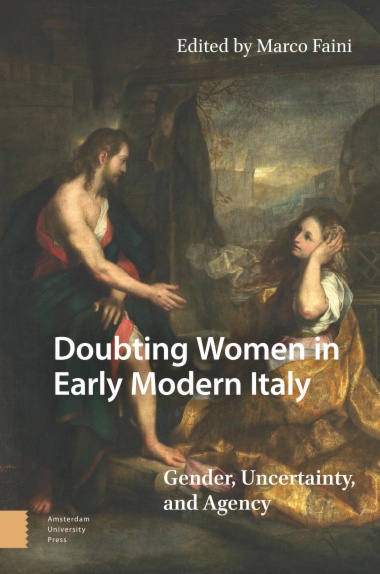This book explores early modern Italian women as agents of doubt. While women were often considered prone to doubt as a result of their natural “weakness,” the essays gathered here reverse this view, demonstrating how women were able to embrace doubt as a means to expand their agency. Using doubt to contest both official narratives as well as religious and civil practices, women were able to carve out a space of their own in contemporary culture and society. The volume covers a period from the late fifteenth to the mid seventeenth centuries, offering critical insight into early modern doubt and investigating how doubt, like other categories of thought, could be gendered.
Contributors address the topics of doubt and the Querelle des Femmes, religion, writing, and social networks. The volume offers a multidisciplinary approach to early modern doubt, combining gender studies with religious history, the history of literature, social history, and the history of science.
- Cover
- Table of Contents
- Acknowledgments
- Part I: Doubt and the Querelle des Femmes
- Introduction
- 1. From Sacred Truths to Human Doubts: Arcangela Tarabotti Decrying Men’s Privileges in Seventeenth-Century Venice
- 2. Doubt and Skepticism in Renaissance Pro-Woman Arguments
- Part II: Religion
- 3. Between Birgitta of Sweden and Savonarola: Domenica da Paradiso and Prophetic Doubt
- 4. “Acciò io esca di certi dubbi”: Women’s Dilemma Between Convent and Marriage in Sister Felice Rasponi’s Works
- Part III: Literary Circles
- 5. “Vi prego non abbiate a ridere di cotesto mio inculto e rozzo modo di scrivere”: Questioning and Self-Questioning Women in Renaissance Love Correspondence
- 6. Doubt and Self-Assertion in Gaspara Stampa’s Rime
- 7. Beatrice Caracciolo’s Doubts, or Rather, Certainties: A Noblewoman and Her Cultural Interests
- Index
- Back cover

